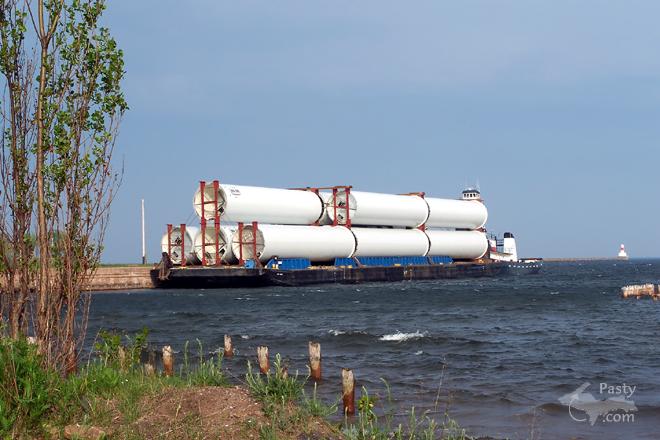By Danbury (Danbury) on Monday, June 25, 2007 - 04:17 am:
The windturbines (4 of them) we've got on the first ridge behind the city were supposed to kill bats. The controversy was fun, one side screaming "batkillers", the other "bat distributers", assuming that hundreds of dead bats were put there to sabotage the turbines and have them removed. Solution: after finding that most dead bats were found after calm summer nights (when turbine output was rather low anyway), during similar conditions the turbines were turned off. Dent in output: somewhere around 1-2%.
Less output than announced: Sign of lousy planning. So far, every windfarm in Germany was so conservatively planned that as a rule, output is actually higher than expected.
Good point, wilderness riddled with cables/trails.
People got used to electricity cables and watertowers in towns. How about wind turbines? Put them near towns, on agricultural lands, reduce the consumption of unspoiled land?
Nuclear: With waste not even yet adressed, nuclear is hardly clean energy (dumping is not adressing but avoiding). Also, who's going to pay the bill for dumping and storage? Gets pretty expensive for a longer time than most want to admit. Breeding technology, unavoidable as urane is a limited ressource like oil, produces lots of plutonium. Not to mention the increased amount of waste, since even with breeding, nuclear energy is no unlimited source of energy. Same trouble as with fusion - no immediate waste, but some day the plants will have to be renewed. Then they turn into waste - radioactive waste.
With windturbines, solar cells and water energy plants scattered around, energy production would be a lot more visible. Which I think would be a very good thing.
Water: Dams do alter the watershed and influence the biosphere. Ought to be taken into account. Fishladders do not always work, usually due to inappropriate design.
The limitations of wind and solar energy (no wind, darkness make the mix necessary, including water, specifically pumped-storage hydroelectricity. An issue in itself, but as was said better before, people need ressources (or: back to the caves ;))
With humans involved, there's no "safe" technology. I'd rather live next to a windturbine that might fall on my head because the good-for-nothing builder cheated on material than in a world with nuke plants where private business and government supervising mess things up out of greed, stunheaded routine or plain old carelessness, which they will sooner or later. Very human traits, come to think of it.
Who thought I wouldn't put in lots of two cents on windturbines and such? ;)
By Joe Dase (Up_miner) on Tuesday, June 26, 2007 - 11:31 am:
Danbury,
Yes uranium is a limited resource, but luckily there’s ALLOT of it, and it produces allot of energy. Its not a permanent solution but a very good intermediate step. The point of breeders is to make plutonium, which can be used as a fuel itself. With reprocessing the fuel, you get much more use out of the fuel and you end up with much shorter half life wastes. The nuclear waste situation isn’t so bad to dispose of, geology does a very good job of trapping it, as there used to be naturally forming nuclear reactors on earth.
As far as fusion goes, that is the ultimate solution, sure you still produce some waste (read the tiles in the vessel), however it would take about 300 years so reduce its radioactivity to coal ash. No matter what you use to power the world it will produce waste, Fusion produces ALLOT less waste the fission, is more biologically sound, would not be high level waste and is within our current technology level.



